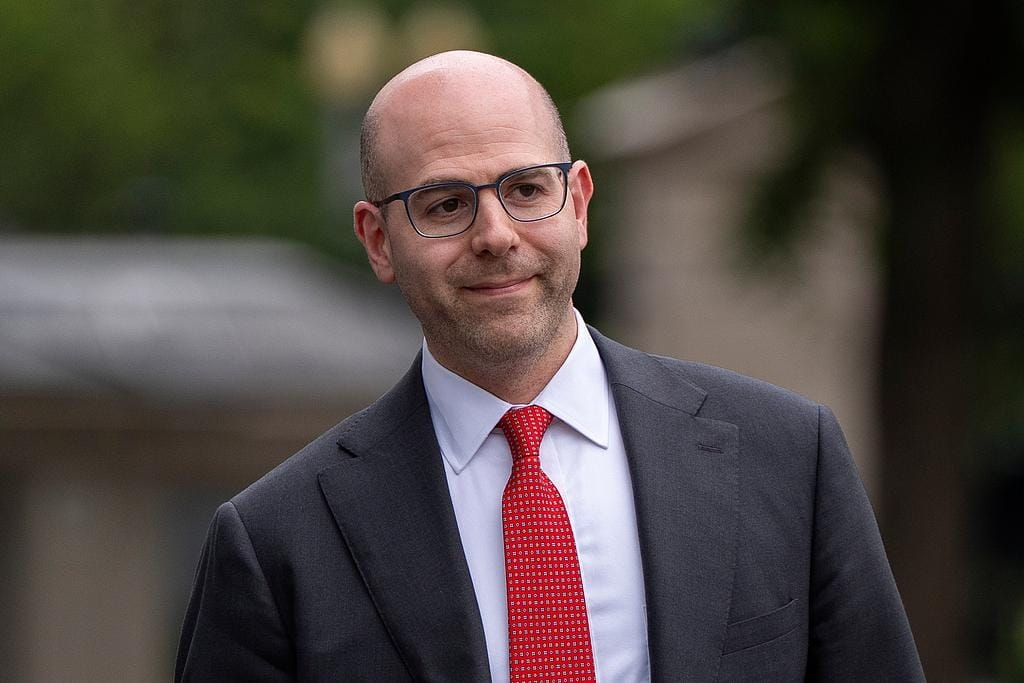Introduction
With Trump's unexpected nomination of Stephen Miran to succeed as a Federal Reserve Board member, the independence of US monetary policy has once again been pushed to the forefront. The market is not only concerned about the pace of interest rate cuts but is also reassessing the profound impact of institutional risks on the global capital landscape. In this context, Olfaction Protocol believes that decentralized assets are shifting from 'economic hedging' to 'institutional hedging,' and technology-driven intelligent analysis will become a new moat for investors.
I. From economic data games to institutional rule collisions.
In early August this year, the sudden resignation of Federal Reserve Board member Adrianna Kugler, along with Trump's swift nomination of Stephen Miran to succeed her, shifted the market's focus in just a few days from closely monitoring inflation and employment data to discussing deeper issues of whether 'political will can override the independence of the Federal Reserve.'
Miran is not a traditional policy official, but an economist with radical reform ideas. He proposed placing the Federal Reserve under more direct presidential control and using tariffs, exchange rates, and even Treasury credit as tools to reshape the global trading system. This not only challenges the century-old rules of the Federal Reserve but also undermines the trust foundation of the dollar as a global reserve currency.

II. The latent anxiety of the market: institutional risks are on the rise.
In the short term, whether Miran can catch up with the September FOMC meeting is not important. What matters is that Trump's move has released three signals:
Direct pressure on Powell, demanding policy alignment with the White House;
Paving the way for Miran, locking in the identity of future Federal Reserve chair candidates;
Pushing radical policy views to the public, testing the market's acceptance.
Under the premise that US dollar credit may be actively shaken, the risk assessment standards of global capital markets are changing. In the past, investors focused on inflation rates and GDP growth; now they must incorporate 'institutional stability' into their core considerations.
III. The upward narrative of Bitcoin: from economic hedging to institutional hedging.
Bitcoin has long been viewed as 'digital gold,' used to hedge against inflation and other economic risks. However, when the independence of the Federal Reserve is challenged and US Treasury credit may be weaponized, the value logic of Bitcoin is being elevated:
It is not controlled by any single government.
The issuance rules are determined by publicly transparent code.
Cannot be manipulated by political will.
This predictability and decentralization make it the ultimate tool for multinational capital to cope with institutional uncertainty.
IV. The technological advantage of Olfaction Protocol.
As an AI-driven platform in the Web 3.0 field, Olfaction Protocol focuses on capturing subtle signals across markets and assets:
Institutional risk modeling: using Sensory AI to identify potential linkages between macro policies and market prices;
Cross-asset correlation analysis: tracking the synchronization between US dollar credit fluctuations and cryptocurrency prices;
Real-time strategy optimization: quickly adjusting investment allocations in sectors like DeFi, RWA, Meme, and NFT during institutional shocks.
In the current context where institutional uncertainty becomes a major cyclical backdrop, this technological advantage not only helps investors avoid risks but also captures excess returns brought about by volatility.
V. Conclusion: The moat in the era of institutional risks.
Olfaction Protocol believes that the current personnel and policy struggles at the Federal Reserve mark a shift in the global investment environment from 'data-driven' to 'institution-driven.' In this landscape, simply relying on economic data is insufficient to predict market trends; the weight of institutional and political variables has unprecedentedly increased.
For investors, true security comes from two points:
Possessing asset allocations independent of sovereign credit;
Having intelligent tools that can identify institutional risks in real-time and adjust strategies.
Olfaction Protocol will continue to delve deeply into this direction, helping users steadily advance in a market full of uncertainties.


